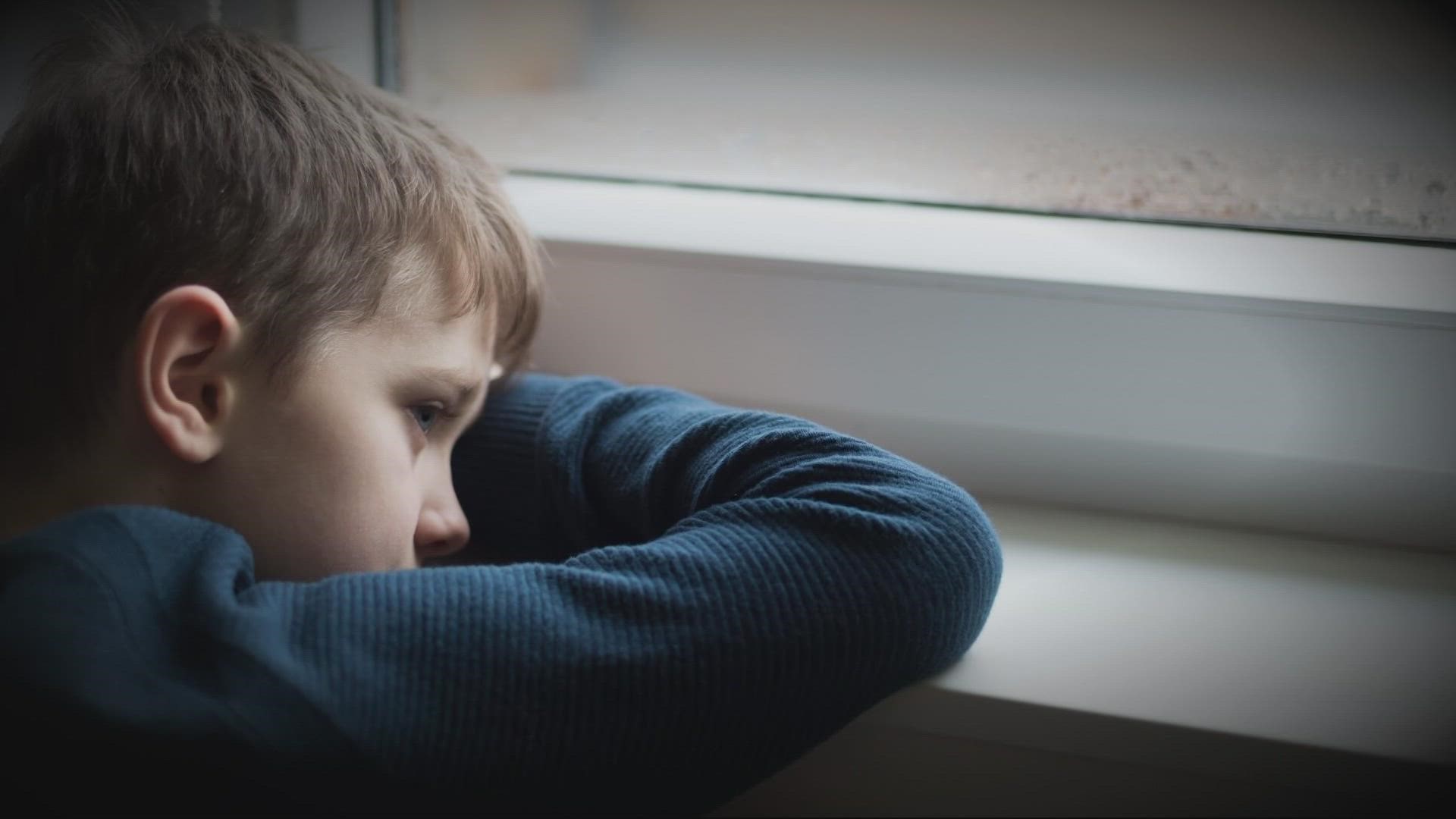PORTLAND, Oregon — Experts are paying close attention to how the pandemic has impacted reports of child abuse in Oregon.
Once students began online learning, many agencies that assist in child abuse investigations saw a drop in calls regarding suspected abuse.
“With the onset of COVID, we saw the number of cases referred for child abuse evaluations drop pretty dramatically,” said Jenny Gilmore-Robinson, the executive director for Child Abuse Response and Evaluation Services (CARES) Northwest, an advocacy group that serves children at the center of child abuse investigations.
Gilmore-Robinson attributes the drop in calls to kids being separated from mandatory reporters like teachers, counselors and coaches. At the start of online learning, kids were at home and away from mandatory reporters, who could identify signs of abuse or maltreatment.
But experts knew that just because the calls dropped, that didn’t mean the abuse stopped.
“I know that no one in the child welfare field believes abuse has decreased,” she said.
Washington County District Attorney Kevin Barton shares the same sentiment.
“Child abuse reports dropped significantly, by about 50% here in Washington County. But we all knew that child abuse itself was not dropping,” he said.
Data from the Oregon Department of Human Services (DHS) shows the number of calls to the Oregon Child Abuse Hotline (ORCAH) and how the pandemic has impacted calls of suspected abuse.
In April 2019, one year before the pandemic, the hotline received more than 600 calls. One year later, when schools shut down, monthly calls to ORCAH dropped in half.
By September 2021, with students back in schools and around mandatory reporters, calls began to creep back up.
“We are still about 18-20% behind where we would normally be for this point in the year, pre-COVID,” said Gilmore-Robinson.
But mandatory reporters have a challenge: getting through to the state's hotline. Many mandatory reporters said they are having to sit on hold and wait to report suspected abuse.
A frustrated teacher contacted KGW and wrote: "I'm a mandatory reporter in Oregon. I called DHS today to report suspected child abuse. I was waiting in a queue of 30 people. People can't be expected to wait on hold for an hour or more to report child abuse."
District Attorney Barton has heard similar experiences.
“I have heard that there are wait times that DHS has been working on to reduce. I don't know where they stand now in terms of where those wait times are, but anecdotally, I've heard there are long wait times for callers,” Barton said.
KGW reached out to DHS for information about why mandatory reporters are sitting on hold for such long periods. The agency would not make anyone available for an interview but sent the following statement:
“In the last month, the call volume to ORCAH has been significant. Maximum and average wait times increased for all caller types when compared to the previous month. In general, when wait times rise, callers often hang up and call back later which compounds reporting for all parties.”
Before the pandemic, DHS reported average wait times of less than 15 minutes. At the start of online learning, wait times dropped below one minute.
Then, in the fall of 2021, the number increased significantly. By December 2021, the average wait time was 30 minutes.
DHS pointed out that not all calls merit an investigation. In fact, according to DHS, 75% of calls to ORCAH in 2021 did not result in an assigned allegation of abuse or neglect.
Jake Sunderland, press secretary for DHS, wrote to KGW: “our data tells us that many people turn to the Oregon Child Abuse Hotline when they want to help but are not sure how. What we see often is that people will call when they see a child and family who is in need or crisis, even though they do not believe that a child is being abused or neglected. For example, a reporter might witness that a family is struggling with hunger and call the Oregon Child Abuse Hotline because they know the family needs help with access to food.”
Part of the backlog, according to DHS, is staffing issues. Sunderland said the agency has only 66% of total positions answering phones at any given time.
DHS said it is working on increasing staff, improving recruitment efforts and working with mandatory reporters to help them determine the difference between maltreatment and a family in need of support, where there is no safety issue at hand.
Barton, who’s worked in the child abuse field for more than a decade, hopes to see this problem addressed, and quickly.
“The reality is, this is a fixable problem if there are long wait times. We need more people, we need more resources so this can be prioritized and it can be the most important thing,” he said.
If you suspect abuse, you can call the Oregon Child Abuse Hotline at 1-855-503-7233 (SAFE).
DHS has provided a resource guide with more information on identifying signs of abuse or maltreatment. Read more here.

